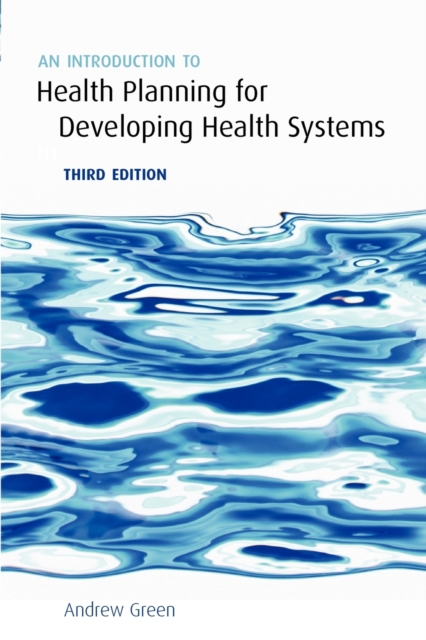
An Introduction to Health Planning for Developing Health Systems Paperback / softback
by Andrew (Professor of International Health Planning and Head of Nuffield Centre for Internatio Green
Paperback / softback
Description
Health planning is a critical component when responding to the health needs of low and middle income countries, characterised by particularly stringent resource constraints.
The major communicable diseases such as AIDS, TB and malaria often appear in parallel with growing non-communicable diseases including heart disease and diabetes, and yet resources are often less than the levels recommended by the World Health Organisation for basic health care.
The new edition of this well-respected text explains the importance of health planning in both developing regions such as Africa, and those in transition, such as Central and Eastern Europe.
It stresses the importance of understanding the national and international context in which planning occurs, and provides an up to date analysis of the major current policy issues, including health reforms.
Separate chapters are dedicated to the distinct issues of finance for health care and human resource planning.
The various techniques used at each stage of the planning process are explained, starting with the situational analysis and then looking in turn at priority-setting, option appraisal, programming, implementation, monitoring, and evaluation.
The book ends by examining the challenges facing planners in the 21st century, particularly in the light of growing globalisation.
A major theme of the book is the need to recognise and reconcile the inevitable tension that lies between value judgements and 'rational' decision-making.
As such, in addition to introducing techniques such as costing and economic appraisal, it also outlines techniques such as stakeholder analysis for understanding the relative attitudes and power of different groups in planning decisions. Each chapter includes a comprehensive bibliography (including key websites), a summary, and exercises to help the reader practise techniques and better understand the content.
The book argues that all health professionals and community groups should be involved in the planning process for it to be effective, and will therefore appeal to anyone involved in planning.
Information
-
Out of stock
- Format:Paperback / softback
- Pages:428 pages, numerous tables and line drawings
- Publisher:Oxford University Press
- Publication Date:11/01/2007
- Category:
- ISBN:9780198571346
Information
-
Out of stock
- Format:Paperback / softback
- Pages:428 pages, numerous tables and line drawings
- Publisher:Oxford University Press
- Publication Date:11/01/2007
- Category:
- ISBN:9780198571346






